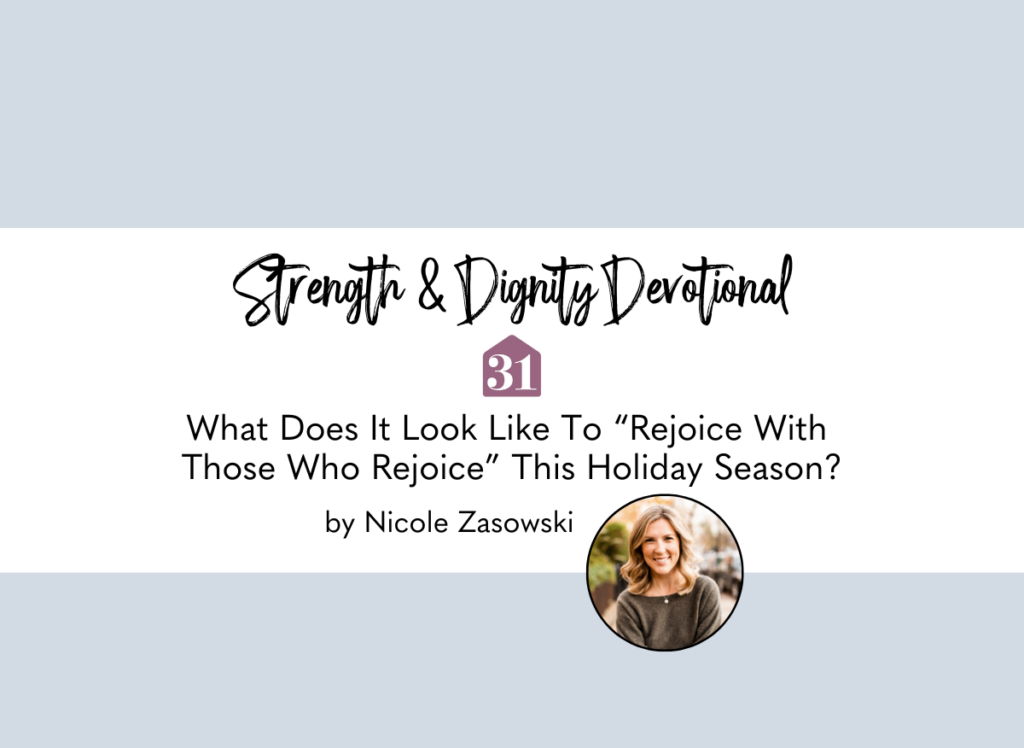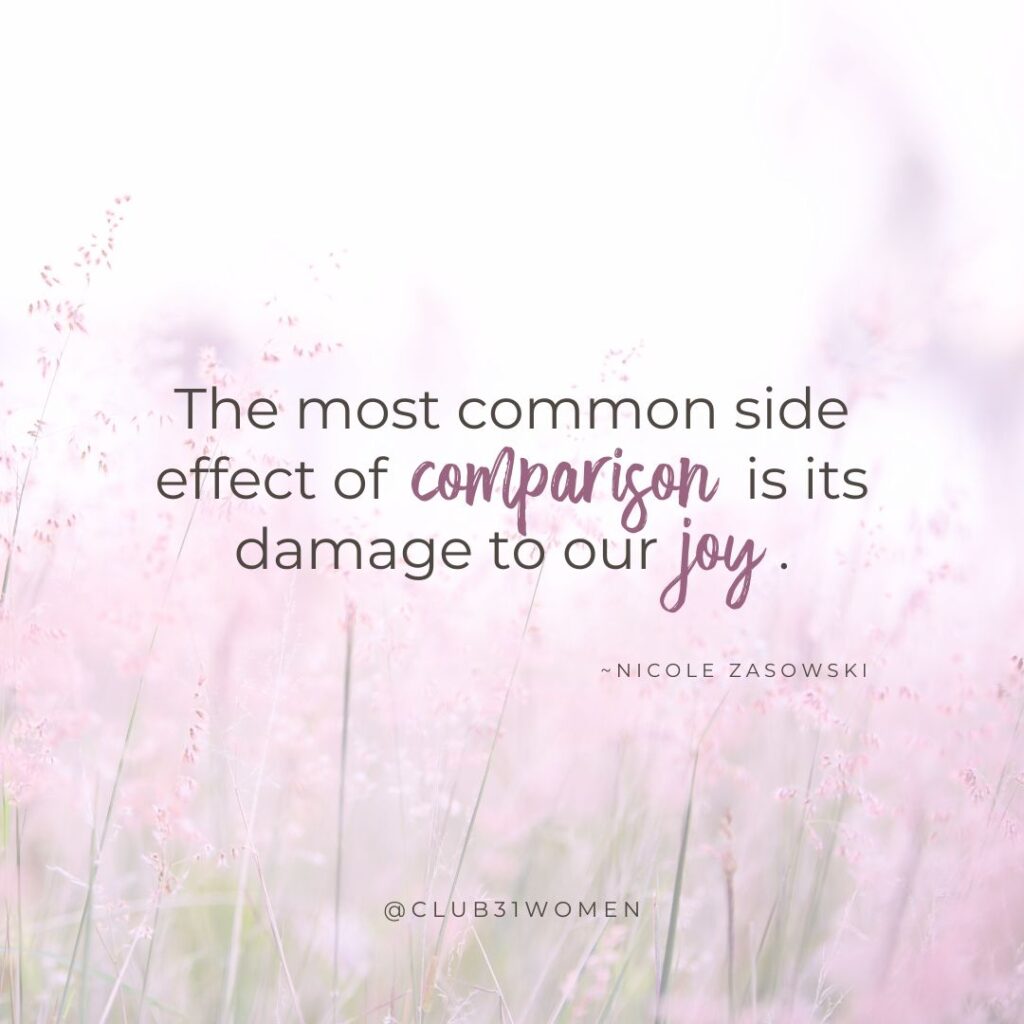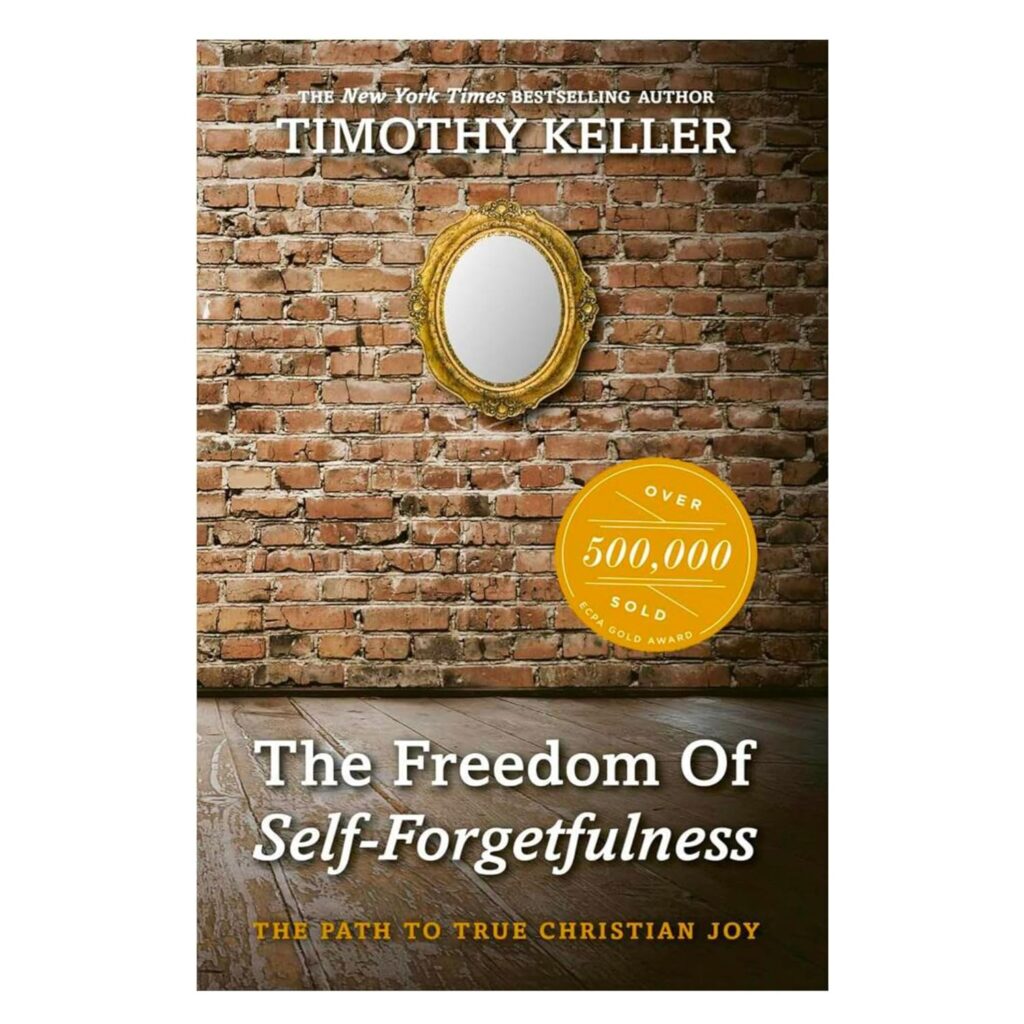What Does It Look Like To “Rejoice With Those Who Rejoice” This Holiday Season?
Let’s let go of comparison this holiday season and rejoice with others fully, just as God calls us to do. Comparison only robs us of joy.
Most of us want to believe that we are the kind of person who celebrates others readily. We want to believe that we join others’ joy easily and eagerly. But while this might be true, if we’re honest, it can be difficult to celebrate with others. Particularly if the other person is celebrating a dream that steps on the toes of our own.

This can be especially difficult during the holidays when emotion is heightened and picture-perfect celebrations are on display. Here, comparison threatens to compromise our ability to truly celebrate others.
We talk about comparison as a habit to avoid in the same way we discuss the fact that we should probably start drinking more water or getting more hours of sleep per night. Everyone knows this fact and no one disagrees, but many of us have become numb to its effects.
Perhaps the most common side effect of comparison is its damage to our joy. I have certainly experienced this to be true in my own life. Often, our sense of satisfaction or dissatisfaction grows in relation to the other. We decide if our lives are worthy of celebration by measuring ourselves against other people. These words from C.S. Lewis highlight comparison’s destructive impact on our identity and sense of security. In the chapter on pride in his seminal book Mere Christianity, Lewis writes, “Pride gets no pleasure out of having something, only out of having more of it than the next person.”
This holiday season, comparison would like for us to believe that we only have permission to celebrate if we are better than whomever we decide to measure ourselves against. Few things will dull your delight or weaken your wonder faster than comparison.
It’s destructive to our relationships too as it demands a winner and it demands a loser. With comparison, there are no tie games. This unhelpful habit offers us a choice between tearing down our own personhood or another’s—even if only in our own minds. When we make the choice to measure our life against another’s, someone will get hurt, whether the consequences are obvious to many or just to you.
So, what do we do instead?
In His Word
The Apostle Paul offers us an answer in Romans 12 when He tells us to “Rejoice with those who rejoice and mourn with those who mourn.” Since my book What if It’s Wonderful? released, I’ve had countless conversations with women who confess that it often feels easier to “mourn with those who mourn” than it does to “rejoice with those who rejoice.” So, what does it actually celebrate others? This holiday season, what would it look like to break our metaphorical measuring sticks and join others in their joy…even if that joy is something that we want for ourselves?
I find God’s conversation with Moses that we find in Deuteronomy 3 particularly helpful in understand Jesus’ call for us to celebrate others instead of comparing ourselves to others.
At this point in the Israelites’ story, Moses had been the Israelites’ leader through years of hardships and victories in the wilderness. Because of his disobedience in striking a rock in order to get water for his community instead of speaking to the rock as God commanded, God had told Moses that he would not be permitted to enter the promised land (Numbers 20:1-12). Now, Moses was so close to the land that he could spot the Israelites’ destination in the distance. He pleaded with God one more time to allow him to enter the land he had been leading God’s chosen people toward for decades. But God’s “no” was final and He told Moses that this would be the end of their conversation on the matter.
I’m no stranger to painful “no’s” and I’m guessing you aren’t either. But what I personally find most challenging is what God says next. Not only did God give Moses a disappointing no and end the conversation, but He also instructed Moses to commission Joshua—to encourage and strengthen him for the dream that would not be possible for himself (v. 28). Moses wasn’t asked to merely accept that Joshua would lead the Israelites into a land that he would never see for himself. He was told to celebrate Joshua, pouring courage and strength into Joshua as his replacement.
We are not given information about how Moses felt in this moment. But like me, I’m guessing you can imagine what this charge must have felt like—to prepare someone else for the dream you’ve been working toward and to celebrate someone else’s gift or opportunity that you would love to have for yourself.

Celebrating Others Over Comparison
If we’re honest, I think we often try to fight comparison by finding ways to be “okay” with others’ success and blessings. Often, we play the game in which we rationalize someone else’s achievements by comparing and contrasting someone else’s joy against our own.
But God doesn’t tell us to merely find a way to accept others’ success. Our charge is the same as it was for Moses: to celebrate others’ joy including celebrations, blessings, and opportunities we would love to have for ourselves. In other words, we are not merely called to accept others’ joy, but to accelerate others’ joy. We do this by pouring courage and strength into them. Maybe you have a connection that could be helpful in fast-forwarding someone’s dream. Or, perhaps you could commit to a regular rhythm of prayer for someone as they pursue an opportunity God has given them. Even asking questions that invite the other person to celebrate their joy with you can be a huge gift and a simple but impactful way of joining them in their joy.
As with any emotional pain I experience, it helps me to return to Jesus’ sacrifice on the cross. When I am tempted to measure my life against another’s or prone to point my finger in judgment of what I deem to be unfair and claim to be an authority on who is deserving of blessing, I am helped by remembering that Jesus traded me my death penalty for an eternal celebrating with Him. I am the recipient of a joy that is anything but fair.
I’ve learned to see comparison and jealousy as the growl that lets me know I’m hungry—hungry for the One who is jealous for my soul. The truth for both you and me is that we will be satiated by nothing else. And this is a joy that is available to all of us this holiday season and our starting place as we challenge ourselves to truly rejoice with those who rejoice.
In Your Life
What has comparison cost you in your own life?
What might it look like to not merely accept others’ joy but to accelerate others’ joy this holiday season?
Could it make a difference in your relationship with others when you reflect on Jesus’ sacrifice on the cross and consider that we have all been the recipient of a joy that is anything but fair?
We Recommend
What If It’s Wonderful? by Nicole Zasowski — Joy can feel risky. When you’ve experienced pain of any kind, it can feel safer not to embrace joy at all than to hold something that might break. Regardless of how different our stories might be, we all know what it’s like to feel afraid to dream because we might be disappointed, afraid to hope because we might be heartbroken, or afraid to try because we might fail. If you ever feel like joy is out of reach, you’re not alone. Thankfully, the Bible paints a different picture—one that gives us the courage to hold joy

The Freedom of Self-Forgetfulness by Timothy Keller — In this short and punchy book, best selling author Timothy Keller, shows that gospel humility means we can stop connecting every experience, every conversation with ourselves and can thus be free from self condemnation. A truly gospel humble person is not a self-hating person or a self-loving person, but a self-forgetful person.
This freedom can be yours…

Let’s Connect
Nicole Zasowski’s books From Lost to Found and What If It’s Wonderful? can be found anywhere books are sold. Nicole would love to connect with you through her website at nicolezasowski.com or on Instagram at @nicolezasowski.

